The top 19 nutrition myths of 2019
 Original Article Location
Original Article Location
Table of Contents:
- Myth 1: Protein is bad for your bones and kidneys
- Myth 2: Carbs are bad for you
- Myth 3: Fats are bad for you
- Myth 4: Egg yolks are bad for you
- Myth 5: Red meat is bad for you
- Myth 6: Salt is bad for you
- Myth 7: Bread is bad for everyone
- Myth 8: HFCS is far worse than sugar
- Myth 9: Fresh is more nutritious than frozen
- Myth 10: Food nutrients are always superior to supplemental nutrients
- Myth 11: Dietary supplements are necessary
- Myth 12: You should eat “clean”
- Myth 13: You should “detox” regularly
- Myth 14: Eat more often to boost your metabolism
- Myth 15: You need to eat breakfast
- Myth 16: To lose fat, don’t eat before bed
- Myth 17: To lose fat, do your cardio on an empty stomach
- Myth 18: You need protein right after your workout
- Myth 19: Creatine will increase your testosterone but cause hair loss and kidney damage
- Misinformation in the mainstream
- Evidence-based information
You’d think that, with all the information at our fingertips today, nutrition myths would have become less pervasive than in our grandparents’ time.
Unfortunately, the internet is rife with misinformation, and it can be really difficult to tell what’s evidence-based without reading the original research yourself. Myths that were previously passed through word-of-mouth now spread like wildfire through social media, blogs, and even established media. Between a 24-hour news cycle, studies that are both long and difficult to read, and journalists scrambling for the latest viral hit, information often gets published without being verified.
As an educational organization that looks only at the evidence, we’ve taken the time to identify the top 19 nutrition myths that just won’t die. At the end of each section, you’ll find a link to pages that further explore the section’s topic with extensive references.
Myth 1: Protein is bad for your bones and kidneys
Carbs and fats often take the blame for various health issues, but the third macronutrient isn’t always spared by the media. Protein has often been accused of causing bone and kidney damage.
Let’s tackle those two claims one at a time.
More protein in the diet has been linked to more calcium in the urine. Two reasons have been suggested to explain this phenomenon:
- Your body draws from its calcium stores (in bones) to buffer the acid load caused by dietary protein. This has led researchers to suggest that higher protein intake could cause greater bone loss.[1]
- Most studies that looked at protein intake and calcium excretion list dairy products as a protein source,[2] so higher urinary calcium could simply be the result of higher calcium intake (i.e., more calcium in, more calcium out). Therefore, looking only at calcium excretion wasn’t enough. Subsequent studies showed that dietary protein promotes dietary-calcium absorption[3] and that high protein intake “promotes bone growth and retards bone loss whereas low-protein diet is associated with higher risk of hip fractures.”[4] All in all, current evidence suggests that protein actually has a neutral or even protective effect on bones.[5][6]
Other studies determined that high protein diets increased glomerular filtration rate (GFR), a marker for waste filtration in the kidneys.[7] It was argued that increased GFR was a sign that undue stress was put on the kidneys,[8] but later research has shown that kidney damage does not occur as a result of diets high in protein.[9][10]
The Truth: Protein, even in large amounts, isn’t harmful to your bones or kidneys (unless you suffer from a pre-existing condition).
In conclusion, randomized trials thus far have not shown high protein diets to have harmful effects on the bones or kidneys in otherwise healthy adults.[9]
Myth 2: Carbs are bad for you
For decades, fat was the enemy; today, there’s a new scapegoat: carbs. Vilifying carbs and insulin seems to get more popular by the year.
Many people believe that the popular glycemic index and the lesser-known insulin index[11] rank foods by their “unhealthiness”. Yet, available research on low-glycemic diets have seen results ranging from neutral to modest improvements,[12][13][14][15][16][17][18] even for diabetics.[19][20][21]Furthermore, a low-glycemic diet doesn’t universally perform better than other diet patterns.[22]
Similarly, the carbohydrate-insulin model of obesity, which theorizes that obesity is caused by carbs and the insulin response they evoke,[23] is not well-supported by the evidence.[24][25] In 2017, a meta-analysis of 32 controlled feeding studies was published. Some of those studies were metabolic ward studies and some were free-living studies, but in each case, meals were provided by the researchers, who wished to ensure that each diet would provide specific amounts of calories and nutrients (within each study, the diets were equal in calories and protein but not in fat and carbs). So what were the results? These studies help us understand the mechanism of weight loss, more so than a diets real-world effectiveness. Low-fat diets resulted in greater fat loss (by an average of 16 grams per day) and greater energy expenditure (by an average of 26 Calories per day). This would give low-fat diets a fat-loss advantage, though one “so small as to be physiologically meaningless”.[26]
These results are consistent with long-term free-living studies of low-carb or keto diets that test a diets real-world effectiveness. Meta-analyses of RCTs of show that neither provide clinically relevant weight loss differences when compared to higher-carb diets.[27][28]
Cutting down carb intake (especially processed carbs) can be helpful, if it helps you eat healthier. But if cutting carbs makes you eat worse or feel worse or you can’t stick with it, you should consider other options. If you wish to lose weight, what matters is not to replace fat by carbs or carbs by fat, but to end most days on a caloric deficit.
The Truth: As long as you do not overindulge, there is nothing inherently harmful about carbohydrates.
Myth 3: Fats are bad for you
Eat fat, gain fat, right? For many decades, the traditional way to lose weight has been to subject oneself to a low-fat diet, yet current evidence suggests that, given the same caloric deficit and protein intake, low-fat and low-carb diets produce similar weight losses.[17][26][29][27][28]
Moreover, while low-fat diets are not inherently unhealthy, shunning all fat from your diet can be dangerous, since your body needs to consume at least some omega-3 and omega-6 fatty acids. As for saturated fat being the main driver of cardiovascular disease: yes, just another myth.
At the end of the day, trans fat is the only kind of fat that has been shown to be categorically detrimental to health — a little won’t kill you, but it will do harm.[30]
The Truth: If you stay in a caloric surplus, a low-fat diet won’t make you lose weight. You need some omega-3 and omega-6 fatty acids, and saturated fat won’t necessarily give you a heart attack (but too much trans fat may).
Related article:
Myth 4: Egg yolks are bad for you
If there’s one thing the media is good at, it’s scaring you away from perfectly healthy foods.
Eggs have been demonized because their yolks, which are chock-full of nutrients, contain high levels of cholesterol. Yet, for most people, eating foods high in cholesterol is not strongly linked to an increase in blood cholesterol levels.
More to the point, in clinical trials, no association was found between eggs and cardiovascular disease, except maybe in some people with specific pre-existing conditions such as diabetes or hyperglycemia.PMID|23676423
The Truth: Eggs are a great source of protein, fats, and other nutrients. Their association with high cholesterol and cardiovascular disease has been severely overblown.
Related article:
Myth 5: Red meat is bad for you
The common refrain: red meat causes cancer.
Absolute statements are why we have so many nutrition myths. Cancer is particularly difficult to discuss in absolutes. After all, almost everything we eat has the potential to be involved in cancer development[31] Yet, red meat has been fingered as a likely culprit.
Some compounds — such as polyaromatic hydrocarbons (PAHs), found in smoked meats — have been found to damage the genome, which is the first step to potential cancer. Current evidence suggests that processed red meats, particularly those that are more charred during cooking, canpose a greater cancer risk for people with poor diets and lifestyles.[32][33] But if you moderate your red meat intake, exercise regularly, eat your fruits and veggies, consume adequate fiber, don’t smoke, and drink only in moderation, red meat’s effect on cancer isn’t something to worry too much about.
The Truth: Fears about red meat causing cancer are vastly exaggerated. Making healthy lifestyle choices (such as staying at a healthy weight, exercising, and not smoking) is more important than micromanaging your red meat intake. Still, if you plan to decrease your intake of red meat, start with the kind that has been cured, smoked, or highly processed.
Related article:
Myth 6: Salt is bad for you
Some myths contain a grain of truth. Studies have associated excess salt with hypertension (high blood pressure),[34] kidney damage,[35] and an increased risk of cognitive decline.[36][37]
But salt (sodium) is an essential mineral; its consumption is critical to your health. The problem is when you consume too much sodium and too little potassium.
Another issue is the source of all that salt. The average North American eats an incredible amount of salty processed foods[38] — which means that people who consume a lot of salt tend to consume a lot of foods that are generally unhealthy. That makes it hard to tease apart sodium’s effects from overall dietary effects. Except for individuals with salt-sensitive hypertension,[39] the evidence in support of low sodium intakes is less conclusive than most people would imagine.[40][41] As it stands, both very high and very low intakes are associated with cardiovascular disease.[42]
The Truth: Salt reduction is important for people with salt-sensitive hypertension, and excess salt intake is associated with harm. But drastically lowering salt intake has not shown uniform benefit in clinical trials. Most people will benefit more from a diet of mostly unprocessed foods than they would from micromanaging their salt intake.
Myth 7: Bread is bad for everyone
Bread has taken a beating over the past few years (especially white bread). The bread detractors generally make two arguments against its consumption:
- 1Bread will make you fat.
- 2Bread contains lots of gluten, which is bad for you.
Bread will not inherently make you fat, but it tends to be dense in calories and therefore easy to overeat. And of course, most people will eat bread with other high-calorie foods, such as butter, peanut butter, jam, or honey. This can lead to a caloric surplus and thus to weight gain over time. Moreover, while bread can be part of a healthful diet, a bread-centric diet can crowd out more nutrient-rich foods, notably fruits and vegetables.
Also, some people choose to avoid bread entirely because of its gluten content. Gluten critics claim that any amount of gluten (a protein, ironically, not a carb) is a danger to all. While “all” is an exaggeration, it is indeed possible to suffer from non-celiac gluten sensitivity.[43][44] However, it is also possible for your wheat sensitivity[45] to be caused by other compounds, such as FODMAPS(short-chain carbohydrates known to promote intestinal distress by fermenting and producing gas).[46][47]
White bread vs. whole-wheat bread
You may have heard that eating bread is all right as long as it’s whole-wheat bread. While white bread (made from wheat flour) and whole-wheat bread provide a similar number of calories, whole-wheat bread has a lower glycemic index and insulin index, and so its consumption results in a lower insulin release. For that reason, and because of its higher fiber and micronutrient content, whole-wheat bread is claimed to be healthier than white bread.
What the media frequently fails to mention is that the actual differences between white bread and whole-wheat bread are relatively small. Yes, whole-wheat bread has a higher fiber content — but this content pales compared to that of many fruits and vegetables. You most definitely don’t have to eat whole-wheat products to get enough fiber in your diet! And yes, white bread does lose more micronutrients during processing — but those micronutrients are often reintroduced later (the bread is then called “enriched”).
The Truth: While some people are sensitive to wheat, the gluten content isn’t necessarily to blame, and other foods may also be implicated. Bread, nor any other food, will inherently cause weight gain unless its consumption puts you in a caloric surplus. Though whole-wheat bread is claimed to be far healthier than white bread, they aren’t that different, and neither contains high levels of fiber or micronutrients.
Related article:
Myth 8: HFCS is far worse than sugar
High fructose corn syrup (HFCS) is a blend of both glucose and fructose commonly used to sweeten food products.
Early evidence led to the belief that fructose could cause fatty-liver disease, as well as insulin resistance and obesity. By extension, HFCS is frequently said to be unhealthy, since it is high in fructose.
The reality is that there isn’t always more fructose in HFCS than in sugar. Liquid HFCS has a fructose content of 42–55%. Sucrose, also known as table sugar, is 50% fructose. The difference (-8% to +5%) is too slight to matter.
The Truth: HFCS and table sugar are very similar from a health perspective. Though HFCS may sometimes contain more fructose, the difference is negligible.
Related article:
Myth 9: Fresh is more nutritious than frozen
Fresh produce has a natural appeal to many people. It just sounds better than “canned” or “frozen” fruits and vegetables. But just because a food is “fresh” doesn’t necessarily mean it’s more nutritious.
Fresh produce is defined as anything that is “postharvest ripened” (if it ripens during transport) or “vine-ripened” (if it is picked and sold ripe: at a farmer’s fresh market or at a farmer’s roadside fruit stand, for instance).
Frozen produce is generally vine-ripened before undergoing minimal processing prior to freezing. Most vegetables and some fruits undergo blanching in hot water for a few minutes before freezing, in order to inactivate enzymes that may cause unfavorable changes in color, smell, flavor, and nutritional value.[48]
While there are some differences between fresh and frozen for select nutrients in select fruits and veggies, overall they have very similar nutritional content.[49]
The Truth: While there can be some nutrient differences between fresh and frozen produce, the overall differences are small. Pick whichever suits your taste, budget, and lifestyle.
Related article:
Myth 10: Food nutrients are always superior to supplemental nutrients
How often have you heard the claim that natural, whole foods are always better than synthetic supplements? In general, the word “natural” has a positive connotation whereas “synthetic” or “chemical” has a negative one.
The truth, of course, isn’t so clear-cut. Some compounds are more effective in supplemental form. One example is the curcumin in turmeric. On its own, your body cannot absorb it well; but taken in liposomal form[50] or supplemented with piperine, a black pepper extract, curcumin sees its bioavailability increase dramatically.
The same goes for vitamins. For instance, phylloquinone (K1) is tightly bound to membranes in plants and so is more bioavailable in supplemental form.PMID|8813897 Likewise, folic acid (supplemental B9) is more bioavailable than folate (B9 naturally present in foods), though that may not always be a good thing.
The Truth: With regard notably to vitamins, foods are not always superior to supplements.
Myth 11: Dietary supplements are necessary
This is a favored line of thinking by supplement companies and health gurus. One argument is that natural foods fail to provide enough vitamins and minerals, due increasing levels of carbon dioxide (CO2) and intensive agriculture leading to less nutrient dense crops.[51][52] Another argument is that foods are a mess of unknown compounds, in addition to known “poisons” such as the dreaded saturated fat, cholesterol, gluten, and FODMAPs.
No wonder that more than one-third of Americans take a multivitamin or multimineral. Better cover one’s bases, or so the thinking goes. Alas, there is no evidence that taking a multi will increase your life expectancy. While it may support your health in some ways, by ensuring adequate intakes of underconsumed nutrients, it could hurt it in others, by making you overconsume some nutrients to the point where they may harm your health.
Fact is, multis are seldom well formulated. Due to cost and space considerations (people willing to take one pill a day may balk at taking ten), multis are often rich in micronutrients abundant in a healthy diet and poor in others you are more likely to need. Try to focus on what you actually need by tweaking your diet and, in special cases, by supplementing with specific micronutrients — such as vitamin B12 if you are vegan or a senior, or vitamin D if you seldom get enough sun exposure on your skin.
In fact, many foods you’ll find at the supermarket are already fortified with the micronutrients you’re most likely to lack. Milk, for instance, is frequently fortified with vitamin D, whereas salt is iodized, and enough foods are fortified with folic acid that you’re as likely to get too much as not enough.
In that light, it may be tempting to take the next step and live on meal replacements, with all the necessary nutrients added in and none of the aforementioned “poisons”. That could work — if we actually knew all the optimal intakes for nutrients. We learn a little more each day, but there’s still much we don’t understand about food components and their interactions with different systems in our bodies (and with different people). So, until we reach a perfect understanding of the human body and its nutritional needs, you’re safer eating a varied diet of little-processed foods than ingesting the same meal replacement day after day after day. And it’ll taste better.
The Truth: Supplements have their use. Some people may benefit from supplementing specific vitamins or minerals. But supplements should complete a healthy diet — not replace it.
Related articles:
Myth 12: You should eat “clean”
This statement is not so much a myth as a jumble of misconceptions. First of all, people seldom agree on what “clean” actually means. For some, it means shunning specific foods for religious or ethical reasons. For others, it means avoiding highly processed foods. For others still, it means eating organic. One common point of clean diets is their focus on exclusion: they tell you what clean eating is by telling you what not to eat.
Veganism can be considered a prototypal clean diet, as it shuns all animal products both for ethical reasons and for better health. But although vegans and vegetarians do tend to be healthier on average,[53] this may be due to reasons unrelated to food. For instance, people who stick to a vegetarian diet are more likely to also stick to an exercise regimen and neither drink in excess nor smoke.[54][55]
As it stands, compared to people eating a varied omnivorous diet, vegans (and, to a lesser extent, vegetarians) are more likely to get less than the optimal amount of some nutrients, such as L-carnitine or vitamin B12. However, those nutrients can easily be supplemented — nowadays, there are even plant-based options for EPA, DHA, and vitamin D3.
But animal products aren’t the only “unclean” foods for clean-diet proselytizers. You can’t simply “eat your veggies” — you need to make sure they’re organic. This is presented as self-evident, on the principle that “natural” is good whereas “synthetic” is bad. So far, however, what few studies have investigated the effect of organic food on clinical health outcomes have failed to consistently link organic foods, plants or animal, to better health.
To be more precise, most observational studies have found no association between eating organic and a decrease in risk of eczema, wheezing, atopic sensitization, or overall incidence of cancer.[56][57]One observational study reported that eating mostly organic food might decrease the risk of developing non-Hodgkin lymphoma in women.[57] Another reported that, compared to non-organic dairy products, organic dairy products might lower the risk of eczema in young children.[58]
None of this proves that a link cannot exist between organic food and better health, but the organic-versus-conventional debate is complex, and can change both with the foods under scrutiny and with the individuals eating them.
One misconception is that no synthetic substance can be used to grow organic crops, whereas the National List of Allowed and Prohibited Substances makes some exceptions. Another misconception is that no pesticide can be used to grow organic crops, whereas natural pesticides exist, are used to grow organic crops, and are not always better for the consumer or the environment.[59]
Pesticide residues in food are a valid concern, though it should be noted that the Pesticide Data Program (PDP) of the United States Department of Agriculture (USDA) has consistently found that the vast majority of the food on the market contain either no detectable residues or residues below the tolerable limits set by the Environmental Protection Agency (EPA).
While the USDA does not currently test for residues of pesticides commonly use on organic foods, it does test for residues of pesticides not approved and some approved for limited application. Unsurprisingly, pesticide residues were most often found in non-organic foods, but when found, pesticide residues were similarly low in both organic and non-organic foods.
To add another wrinkle, there is some evidence that even very low doses of pesticides might still elicit physiological effects.[60] These effects, be they beneficial, neutral, or harmful, and be they from organic or conventional pesticides, are not well studied. So, what is a consumer to do? The practical solution is quite simple: rinsing, peeling when possible, and cooking can reduce the amount of pesticide left on your produce, whether this produce is organic or not.[61][62]
Is our food clean enough yet? Not quite. Some “clean eating” gurus recommend that you only eat your food raw, so as not to “denature” its nutrients. As an absolute, this rule is a myth. Raw milk can contain harmful bacteria. Raw eggs contain avidin, a protein that can bind biotin and thus lead to biotin deficiency if consumed frequently.[63][64] Cooking can reduce the nitrate content of vegetables (bad) but also their oxalate content (good). You can’t generalize.
It’s easy to see how one can push the “clean eating” obsession too far, even all the way into orthorexia nervosa, a disorder in which you become obsessed with eating healthy.[65] It doesn’t mean that all foods are equal, and you certainly should favor whole foods over highly processed foods — most of which are nutrient-poor, calorie-dense, and easy to overeat — but you shouldn’t fear that eating anything but raw organic veggies is going to drastically shorten your lifespan (whereas too much stress can[66]).
The Truth: “Clean eating” is tough to define, as gurus don’t even agree on which foods are clean and which are not. Stick to the basics. Favor whole foods (but don’t feel like any small amount of processed foods will kill you), eat organic if you wish to and can afford it, peel or wash all your vegetables and fruits, and avoid stressing too much about what you eat, since stress can shorten your lifespan.
Related article:
Myth 13: You should “detox” regularly
“Detox diets” are the ultimate manifestation of the “clean eating” obsession. Such diets commonly limit foods to plant-based juices, sometimes seasoned with a supplement. After a few days of that regimen, you’re supposed to be cleansed of …
Well, those detox diet companies don’t really know. A 2009 investigation of ten companies found they couldn’t name a single “toxin” eliminated by any of their fifteen products — let alone prove that their products worked. Strictly speaking, toxins are plant- or animal-based substances poisonous to humans; but for many detox gurus, “toxins” also include heavy metals … and everything synthetic: not just toxicants (man-made poisons, such as pollutants or pesticides), but also preservatives, high-fructose corn syrup, etc.
Alas, even when a substance really is noxious, a “detox diet” won’t help. Acute toxicity would likely constitute a medical emergency, whereas chronic toxicity can be handled better by a well-fed body — not one weakened by a severely hypocaloric diet. The liver, kidneys, lungs, and other organs work around the clock to remove harmful substances and excrete the waste products of metabolism. By reducing your intake of the nutrients they need to perform these functions, a detox diet can hinder your body’s natural detoxification process! If you wish to promote this process, your best bet is to load up with various foods that can help these organs work optimally,[67] such as cruciferous and other fibrous veggies.[67][68]
Detox diets are not necessarily safe, either. Every now and then a case report emerges about potential risks, such as kidney damage from green smoothies[69] or liver failure from detox teas.[70]
But if “detox diets” are more likely to harm than help, what explains their current popularity? One answer is: quick weight loss. Deprive your body from carbohydrate and you can exhaust its glycogen stores in as little as 24 hours. The resulting loss of several pounds can convince you the diet had a positive effect.[71] When the diet ends and you resume your regular eating habits, however, the glycogen and associated water come rushing back in, and with them the pounds you’d shed.
The Truth: Focus on sustainable health habits, such as eating nutritious food on a daily basis. Ample protein, leafy greens, and foods chock-full of vitamins and minerals are not just tastier than anything a “detox diet” has to offer, they’re also way better for you (and your liver detoxification pathways, ironically). A detox diet might make you feel better, but that’s usually because of the increased vegetable and fruit intake, not because any form of detoxification is taking place.
Related articles:
Myth 14: Eat more often to boost your metabolism
It’s easy to trace this myth back to its origin. Digestion does raise your metabolism a little, so many people believe that eating less food more often keeps your metabolism elevated.
But evidence shows that, given an equal amount of daily calories, the number of meals largely makes no difference in fat loss.[72] Moreover, some studies suggest that having smaller meals more often makes it harder to feel full, potentially leading to increased food intake.[73] Your metabolism can fluctuate based on the size of the meal, so fewer but larger meals means a larger spike in metabolism. Over the course of a day or week, given an equal amount of calories, the number of meals doesn’t seem to matter — it all evens out.
The Truth: Digestion does slightly increase your metabolic rate, but meal frequency has less effect than the total caloric content of the food consumed.
Related article:
Myth 15: You need to eat breakfast
“Breakfast is the most important meal of the day” is something we have all heard before from parents, health bloggers, doctors, and ad campaigns. But the health advantages of consuming a regular breakfast has been overhyped.
People who are #TeamBreakfast have pointed to observational studies showing a higher BMI in breakfast skippers.[74] However, clinical trials have pointed to personal preference being a critical factor. Some people will subconsciously compensate for all the calories they skipped at breakfast, while others won’t feel cravings of the same magnitude. In one trial, women who didn’t habitually eat breakfast were made to consume it; they gained nearly 2 pounds over a 4-week period.[75] Individual responses do vary, so don’t try to force yourself into an eating pattern that doesn’t sit well with you or that you can’t sustain — it may end up backfiring.
Another popular claim is that skipping breakfast can crash your metabolism. But studies in both lean and overweight individuals have shown that skipping breakfast does not inherently slow your resting metabolic rate (RMR).[76][77]
One area where the “don’t skip breakfast” mantra might hold true is in people with impaired glucose regulation. These individuals might benefit from consuming breakfast in order to achieve better day-to-day glucose management.”
One area where the “don’t skip breakfast” mantra might hold true is in people with impaired glucose regulation. These individuals might want to play it safe and avoid skipping breakfast in order to achieve better day-to-day glucose management.[78]
The Truth: You don’t need to eat breakfast to be healthy or lose weight. You should base your breakfast consumption on your preferences and personal goals. Feel free to experiment to see if you want to make skipping breakfast a habit.
Related article:
Myth 16: To lose fat, don’t eat before bed
Some studies show a fat-loss advantage in early eaters, others in late eaters. Overall, early eaters seem to have a slight advantage — nothing impressive.[79][80] Trials, however, imperfectly reflect real life. In real life, there are two main reasons why eating at night might hinder fat loss, and both are linked to an increase in your daily caloric intake.
The first reason is the simplest: if, instead of going directly to bed, we first indulge in a snack, then the calories from that snack are calories we might have done without.
The second reason is that, when we get tired, we tend to eat to keep going, with a predilection for snack foods or tasty treats. So if we stay awake at night — especially to work or study, but even just to watch TV — we’re more likely to eat, not out of hunger, but to help fight sleepiness.
The Truth: Eating late won’t make you gain fat, unless it drives you to eat more. It can also be harder to resist tasty, high-calorie snacks after a long day.
Related article:
Myth 17: To lose fat, do your cardio on an empty stomach
Let’s get one thing out of the way. If you exercise near maximal capacity (sprints, HIIT, heavy lifting …), eat an hour or two prior to your workout, or you’ll be more likely to underperform. Most people who choose to skip meals and work out in a fasted state, however, opt for some more moderate form of cardio (aerobic exercise), such as jogging.
During cardio, performance and energy expenditure in the fasted state are about the same as in fed state. In the fasted state, you’ll burn more body fat, but that won’t make it easier for you to use body fat as fuel during the rest of the day (when you’re fed). You’ll also burn a tiny bit more muscle, but you’ll grow it back faster afterward, too — it seems to balance out (as long as you get enough protein). Finally, cardio suppresses appetite less in the fasted state than in the fed state, but that doesn’t translate into a significant difference in daily caloric intake.
The Truth: There’s very little difference between cardio in the fed or fasted state, be it with regard to fat loss, muscle preservation, daily caloric intake, or metabolic rate. What really matters, then, is you. Some people feel lighter and energized when they do cardio on an empty stomach, while others feel light-headed and sluggish. Fed or fasted state: pick whichever makes you feel better.
Related article:
Myth 18: You need protein right after your workout
When you exercise, you damage your muscles, which your body then needs to repair, often making them more resilient (bigger) in the process. The raw material for this repair is the protein you ingest, yet the existence of a post-workout “anabolic window” for this ingestion remains a contentious topic in the literature.[81][82]
“You need protein right after your workout” may not be a myth so much as an exaggeration. Consuming 20–40 g of protein within the two hours following your workout may be ideal, but it isn’t necessary. What matters most is your daily protein intake. To maximize muscle repair, aim for 1.4–2.2 g of protein per kilogram of bodyweight per day (0.64–1.00 g/lb/day).
The Truth: You don’t need protein immediately after your workout, but you might benefit from 20–40 g within within the next couple of hours. What matters most, however, is how much protein you get over the course of the day.
Related article:
Myth 19: Creatine will increase your testosterone but cause hair loss and kidney damage
No, unlikely, and no. Being one of the most widely used supplements, creatine has been subjected to a whole host of spurious claims. Let’s tackle these three common ones.
Testosterone increase
Creatine helps build muscle by making it easier for your cells to regenerate adenosine triphosphate(ATP), a source of energy. To this day, there is not strong evidence that creatine can raise testosterone levels.
Three randomized controlled trials (RCTs), totalling 60 male participants, have seen small yet statistically significant increases in either testosterone or dihydrotestosterone (DHT) with supplemental creatine.[83][84][85] However, ten other RCTs, totalling 218 participants, reported no effect of creatine doses ranging from 3–25 g on testosterone.[86][87][88][83][89][90][91][92][93][94][95][87]
People wishing to optimize their testosterone levels should focus on more proven options, such as sleep, exercise, calories, vitamin D, magnesium, and zinc. Suboptimal amounts of any of these can decrease testosterone production.
Hair loss
The idea that creatine might increase hair loss stems from a single RCT whose participants (20 healthy young male rugby players) saw a small but statistically significant increase in DHT after supplementing with creatine for 21 days.[83] When DHT, a potent metabolite of testosterone, binds to DHT receptors on the hair follicles of the scalp, those follicles may shrink and stop producing hair.[96][97]
To date, this RCT is the only one to have tested creatine’s effects on DHT. However, a number of RCTs have examined creatine’s effects on testosterone. Out of twelve additional RCTs, two saw a significant increase in testosterone[84][85] but ten saw no effect.[86][87][88][83][89][90][91][92][93][94] Of those twelve RCTs, five also tested creatine’s effects on free testosterone, the form that gets converted into DHT, and all saw no significant increases.[86][89][91][87][93]
Creatine could non-significantly increase free testosterone yet significantly increase DHT (i.e., a small increase in free testosterone, which can convert into DHT, could lead to a much greater increase in total DHT). So can while it’s technically possible that creatine might have some effect on hair loss, current evidence and mechanistic data indicate it’s quite unlikely.
Kidney damage
Blood levels of creatinine (a byproduct of energy production) are used as an indicator of kidney function, but elevated levels caused by supplemental creatine are not a sign that your kidneys underperform.[98][99]
No adverse effects on kidney function were found in …
- People with healthy kidneys taking up to 10 grams of creatine per day. Short- and long-term trials are numerous and the results are consistent.[100][101][102][103][104][105][106][107]
- People with healthy kidneys taking more than 10 grams of creatine per day. Long-term trials are few, however, so caution is warranted.[107]
- People with suboptimal kidney function taking up to 5 grams of creatine per day. Trials in this population are scarce, however, so caution is warranted.[108][109][110][111]
If you plan to have your creatinine levels tested, stop taking creatine at least 3 weeks before the test to avoid a false positive.
The Truth: Out of all the supplements out there, creatine is one of the most extensively researched. The vast majority of the evidence indicates this supplement is safe for long-term use and is unlikely to harm your kidneys, cause hair loss, or increase your testosterone.
Related articles:
- Can creatine increase your testosterone levels?
- Does creatine cause hair loss?
- Is creatine safe for your kidneys?
Misinformation in the mainstream
You’ve likely heard most 19 of these myths repeated at one time or another — by a friend, on a blog, or somewhere in the media. Misinformation is rampant, difficult to identify, and unfortunately spreads much faster than facts.
And really, this is just the tip of the iceberg. You’ll see often see sensationalist headlines based on a study with unsurprising results. In mid-2017, for instance, the media went into a frenzy of similar headlines claiming that a review paper showed that coconut oil was “bad” for you. Of course, when we analyzed the studies, we found that coconut oil, like most other natural foods, has both benefits and downsides. Even the major eight-million dollar study by Stanford University that compared the weight-loss effects of low-fat diets and low-carb diets[17] was misrepresented all over the media. (According to Dr. Christopher Gardner, the study’s main author, Examine.com did the very best job in covering the study.)
It’s why we have an entire team poring over the research. And not just one or two studies, either — but the entire body of evidence.
Evidence-based information
This is what we do. We analyze research, make sense of it, and give it context. We’re an educational organization that prides itself on avoiding clickbait or sensationalist headlines.
Because we all want to get fitter, it’s easy to fall for health myths. That’s why we created our Fitness Guide. It takes a purely evidence-based approach to tackle the six primary facets of achieving peak fitness.
It’s based on what our experts have found over years of research. It’s not about what we feel works, but what we know works.
References
- Barzel US, Massey LK. Excess dietary protein can adversely affect bone . J Nutr. (1998)
- Schwingshackl L, Hoffmann G. Comparison of high vs. normal/low protein diets on renal function in subjects without chronic kidney disease: a systematic review and meta-analysis . PLoS One. (2014)
- Hunt JR, Johnson LK, Fariba Roughead ZK. Dietary protein and calcium interact to influence calcium retention: a controlled feeding study . Am J Clin Nutr. (2009)
- Shams-White MM, et al. Dietary protein and bone health: a systematic review and meta-analysis from the National Osteoporosis Foundation . Am J Clin Nutr. (2017)
- Calvez J, et al. Protein intake, calcium balance and health consequences . Eur J Clin Nutr. (2012)
- Fenton TR, et al. Meta-analysis of the effect of the acid-ash hypothesis of osteoporosis on calcium balance . J Bone Miner Res. (2009)
- von Herrath D, et al. Glomerular filtration rate in response to an acute protein load . Blood Purif. (1988)
- Brenner BM, Meyer TW, Hostetter TH. Dietary protein intake and the progressive nature of kidney disease: the role of hemodynamically mediated glomerular injury in the pathogenesis of progressive glomerular sclerosis in aging, renal ablation, and intrinsic renal disease . N Engl J Med. (1982)
- Devries MC, et al. Changes in Kidney Function Do Not Differ between Healthy Adults Consuming Higher- Compared with Lower- or Normal-Protein Diets: A Systematic Review and Meta-Analysis . J Nutr. (2018)
- Poortmans JR, Dellalieux O. Do regular high protein diets have potential health risks on kidney function in athletes? . Int J Sport Nutr Exerc Metab. (2000)
- Holt SH, Miller JC, Petocz P. An insulin index of foods: the insulin demand generated by 1000-kJ portions of common foods . Am J Clin Nutr. (1997)
- Fleming P, Godwin M. Low-glycaemic index diets in the management of blood lipids: a systematic review and meta-analysis . Fam Pract. (2013)
- Schwingshackl L, Hobl LP, Hoffmann G. Effects of low glycaemic index/low glycaemic load vs. high glycaemic index/ high glycaemic load diets on overweight/obesity and associated risk factors in children and adolescents: a systematic review and meta-analysis . Nutr J. (2015)
- Zhang R, et al. Effects of low-glycemic-index diets in pregnancy on maternal and newborn outcomes in pregnant women: a meta-analysis of randomized controlled trials . Eur J Nutr. (2018)
- Evans CE, et al. Glycemic index, glycemic load, and blood pressure: a systematic review and meta-analysis of randomized controlled trials . Am J Clin Nutr. (2017)
- Clar C, et al. Low glycaemic index diets for the prevention of cardiovascular disease . Cochrane Database Syst Rev. (2017)
- Gardner CD, et al. Effect of Low-Fat vs Low-Carbohydrate Diet on 12-Month Weight Loss in Overweight Adults and the Association With Genotype Pattern or Insulin Secretion: The DIETFITS Randomized Clinical Trial . JAMA. (2018)
- Milajerdi A, et al. The effect of dietary glycemic index and glycemic load on inflammatory biomarkers: a systematic review and meta-analysis of randomized clinical trials . Am J Clin Nutr. (2018)
- Wang Q, et al. Effects comparison between low glycemic index diets and high glycemic index diets on HbA1c and fructosamine for patients with diabetes: A systematic review and meta-analysis . Prim Care Diabetes. (2015)
- Han S, et al. Different types of dietary advice for women with gestational diabetes mellitus . Cochrane Database Syst Rev. (2017)
- Ojo O, et al. The Effect of Dietary Glycaemic Index on Glycaemia in Patients with Type 2 Diabetes: A Systematic Review and Meta-Analysis of Randomized Controlled Trials . Nutrients. (2018)
- Schwingshackl L, et al. A network meta-analysis on the comparative efficacy of different dietary approaches on glycaemic control in patients with type 2 diabetes mellitus . Eur J Epidemiol. (2018)
- Ludwig DS, Ebbeling CB. The Carbohydrate-Insulin Model of Obesity: Beyond “Calories In, Calories Out” . JAMA Intern Med. (2018)
- Hall KD, Guyenet SJ, Leibel RL. The Carbohydrate-Insulin Model of Obesity Is Difficult to Reconcile With Current Evidence . JAMA Intern Med. (2018)
- Hall KD. A review of the carbohydrate-insulin model of obesity . Eur J Clin Nutr. (2017)
- Hall KD, Guo J. Obesity Energetics: Body Weight Regulation and the Effects of Diet Composition . Gastroenterology. (2017)
- Johnston BC, et al. Comparison of weight loss among named diet programs in overweight and obese adults: a meta-analysis . JAMA. (2014)
- Bueno NB, et al. Very-low-carbohydrate ketogenic diet v. low-fat diet for long-term weight loss: a meta-analysis of randomised controlled trials . Br J Nutr. (2013)
- Sackner-Bernstein J, Kanter D, Kaul S. Dietary Intervention for Overweight and Obese Adults: Comparison of Low-Carbohydrate and Low-Fat Diets. A Meta-Analysis . PLoS One. (2015)
- Institute of Medicine. Dietary Reference Intakes for Energy, Carbohydrate, Fiber, Fat, Fatty Acids, Cholesterol, Protein, and Amino Acids. . The National Academies Press.. (2005)
- Schoenfeld JD, Ioannidis JP. Is everything we eat associated with cancer? A systematic cookbook review . Am J Clin Nutr. (2013)
- Pham NM, et al. Meat consumption and colorectal cancer risk: an evaluation based on a systematic review of epidemiologic evidence among the Japanese population . Jpn J Clin Oncol. (2014)
- Durko L, Malecka-Panas E. Lifestyle Modifications and Colorectal Cancer . Curr Colorectal Cancer Rep. (2014)
- Stamler J, et al. Relation of Dietary Sodium (Salt) to Blood Pressure and Its Possible Modulation by Other Dietary Factors: The INTERMAP Study . Hypertension. (2018)
- Soi V, Yee J. Sodium Homeostasis in Chronic Kidney Disease . Adv Chronic Kidney Dis. (2017)
- Fiocco AJ, et al. Sodium intake and physical activity impact cognitive maintenance in older adults: the NuAge Study . Neurobiol Aging. (2012)
- Guo CP, et al. High salt induced hypertension leads to cognitive defect . Oncotarget. (2017)
- Webster JL, Dunford EK, Neal BC. A systematic survey of the sodium contents of processed foods . Am J Clin Nutr. (2010)
- Pilic L, Pedlar CR, Mavrommatis Y. Salt-sensitive hypertension: mechanisms and effects of dietary and other lifestyle factors . Nutr Rev. (2016)
- Mahtani KR, et al. Reduced Salt Intake for Heart Failure: A Systematic Review . JAMA Intern Med. (2018)
- Adler AJ, et al. Reduced dietary salt for the prevention of cardiovascular disease . Cochrane Database Syst Rev. (2014)
- O’Donnell MJ, et al. Urinary sodium and potassium excretion and risk of cardiovascular events . JAMA. (2011)
- Elli L, et al. Evidence for the Presence of Non-Celiac Gluten Sensitivity in Patients with Functional Gastrointestinal Symptoms: Results from a Multicenter Randomized Double-Blind Placebo-Controlled Gluten Challenge . Nutrients. (2016)
- Shahbazkhani B, et al. Non-Celiac Gluten Sensitivity Has Narrowed the Spectrum of Irritable Bowel Syndrome: A Double-Blind Randomized Placebo-Controlled Trial . Nutrients. (2015)
- Carroccio A, et al. Non-celiac wheat sensitivity diagnosed by double-blind placebo-controlled challenge: exploring a new clinical entity . Am J Gastroenterol. (2012)
- Biesiekierski JR, et al. No effects of gluten in patients with self-reported non-celiac gluten sensitivity after dietary reduction of fermentable, poorly absorbed, short-chain carbohydrates . Gastroenterology. (2013)
- Gibson PR, Shepherd SJ. Food choice as a key management strategy for functional gastrointestinal symptoms . Am J Gastroenterol. (2012)
- Barbosa-Cánovas G, Altunakar B, Mejía-Lorio D. Chapter 1. Introduction to freezing . Freezing of fruits and Vegetables: An Agri-Business Alternative for Rural and Semi-Rural Areas. (2005)
- Li L, et al. Selected nutrient analyses of fresh, fresh-stored, and frozen fruits and vegetables . Journal of Food Composition and Analysis. (2017)
- Storka A, et al. Safety, tolerability and pharmacokinetics of liposomal curcumin in healthy humans . Int J Clin Pharmacol Ther. (2015)
- Davis DR, Epp MD, Riordan HD. Changes in USDA food composition data for 43 garden crops, 1950 to 1999 . J Am Coll Nutr. (2004)
- Loladze I. Hidden shift of the ionome of plants exposed to elevated CO₂depletes minerals at the base of human nutrition . Elife. (2014)
- Dinu M, et al. Vegetarian, vegan diets and multiple health outcomes: A systematic review with meta-analysis of observational studies . Crit Rev Food Sci Nutr. (2017)
- Mihrshahi S, et al. Vegetarian diet and all-cause mortality: Evidence from a large population-based Australian cohort – the 45 and Up Study . Prev Med. (2017)
- Bedford JL, Barr SI. Diets and selected lifestyle practices of self-defined adult vegetarians from a population-based sample suggest they are more ‘health conscious’ . Int J Behav Nutr Phys Act. (2005)
- Smith-Spangler C, et al. Are organic foods safer or healthier than conventional alternatives?: a systematic review . Ann Intern Med. (2012)
- Bradbury KE, et al. Organic food consumption and the incidence of cancer in a large prospective study of women in the United Kingdom . Br J Cancer. (2014)
- Kummeling I, et al. Consumption of organic foods and risk of atopic disease during the first 2 years of life in the Netherlands . Br J Nutr. (2008)
- Bahlai CA, et al. Choosing organic pesticides over synthetic pesticides may not effectively mitigate environmental risk in soybeans . PLoS One. (2010)
- Vandenberg LN, et al. Hormones and endocrine-disrupting chemicals: low-dose effects and nonmonotonic dose responses . Endocr Rev. (2012)
- Keikotlhaile BM, Spanoghe P, Steurbaut W. Effects of food processing on pesticide residues in fruits and vegetables: a meta-analysis approach . Food Chem Toxicol. (2010)
- Liang Y, et al. Meta-analysis of food processing on pesticide residues in fruits . Food Addit Contam Part A Chem Anal Control Expo Risk Assess. (2014)
- . Dietary Reference Intakes for Thiamin, Riboflavin, Niacin, Vitamin B6, Folate, Vitamin B12, Pantothenic Acid, Biotin, and Choline . . ()
- Zempleni J, Wijeratne S, Kuroishi T. Biotin . _Present Knowledge in Nutrition_, 10^th^ ed., Erdman JW, Macdonald IA, Zeisel SH, editors, pp. 359–374. (2012)
- Cena H, et al. Definition and diagnostic criteria for orthorexia nervosa: a narrative review of the literature . Eat Weight Disord. (2018)
- Graham JE, Christian LM, Kiecolt-Glaser JK. Stress, age, and immune function: toward a lifespan approach . J Behav Med. (2006)
- Hodges RE, Minich DM. Modulation of Metabolic Detoxification Pathways Using Foods and Food-Derived Components: A Scientific Review with Clinical Application . J Nutr Metab. (2015)
- Kieffer DA, Martin RJ, Adams SH. Impact of Dietary Fibers on Nutrient Management and Detoxification Organs: Gut, Liver, and Kidneys . Adv Nutr. (2016)
- Makkapati S, D’Agati VD, Balsam L. “Green Smoothie Cleanse” Causing Acute Oxalate Nephropathy . Am J Kidney Dis. (2017)
- Kesavarapu K, et al. Yogi Detox Tea: A Potential Cause of Acute Liver Failure . Case Rep Gastrointest Med. (2017)
- Kreitzman SN, Coxon AY, Szaz KF. Glycogen storage: illusions of easy weight loss, excessive weight regain, and distortions in estimates of body composition . Am J Clin Nutr. (1992)
- Stote KS, et al. A controlled trial of reduced meal frequency without caloric restriction in healthy, normal-weight, middle-aged adults . Am J Clin Nutr. (2007)
- Ohkawara K, et al. Effects of increased meal frequency on fat oxidation and perceived hunger . Obesity (Silver Spring). (2013)
- Szajewska H, Ruszczynski M. Systematic review demonstrating that breakfast consumption influences body weight outcomes in children and adolescents in Europe . Crit Rev Food Sci Nutr. (2010)
- LeCheminant GM, et al. A randomized controlled trial to study the effects of breakfast on energy intake, physical activity, and body fat in women who are nonhabitual breakfast eaters . Appetite. (2017)
- Betts JA, et al. The causal role of breakfast in energy balance and health: a randomized controlled trial in lean adults . Am J Clin Nutr. (2014)
- Jakubowicz D, et al. Fasting until noon triggers increased postprandial hyperglycemia and impaired insulin response after lunch and dinner in individuals with type 2 diabetes: a randomized clinical trial . Diabetes Care. (2015)
- Maki KC, Phillips-Eakley AK, Smith KN. The Effects of Breakfast Consumption and Composition on Metabolic Wellness with a Focus on Carbohydrate Metabolism . Adv Nutr. (2016)
- Jakubowicz D, et al. High caloric intake at breakfast vs. dinner differentially influences weight loss of overweight and obese women . Obesity (Silver Spring). (2013)
- LeCheminant JD, et al. Restricting night-time eating reduces daily energy intake in healthy young men: a short-term cross-over study . Br J Nutr. (2013)
- Schoenfeld BJ, Aragon AA, Krieger JW. The effect of protein timing on muscle strength and hypertrophy: a meta-analysis . J Int Soc Sports Nutr. (2013)
- Aragon AA, Schoenfeld BJ. Nutrient timing revisited: is there a post-exercise anabolic window? . J Int Soc Sports Nutr. (2013)
- van der Merwe J, Brooks NE, Myburgh KH. Three weeks of creatine monohydrate supplementation affects dihydrotestosterone to testosterone ratio in college-aged rugby players . Clin J Sport Med. (2009)
- Vatani DS, et al. The Effects of Creatine Supplementation on Performance and Hormonal Response in Amateur Swimmers . Science and Sports. (2011)
- Arazi H, et al. Effects of short term creatine supplementation and resistance exercises on resting hormonal and cardiovascular responses . Science and Sports. (2015)
- Cooke MB, et al. Creatine supplementation post-exercise does not enhance training-induced adaptations in middle to older aged males . Eur J Appl Physiol. (2014)
- Cook CJ, et al. Skill execution and sleep deprivation: effects of acute caffeine or creatine supplementation – a randomized placebo-controlled trial . J Int Soc Sports Nutr. (2011)
- Crowe MJ, O’Connor DM, Lukins JE. The effects of beta-hydroxy-beta-methylbutyrate (HMB) and HMB/creatine supplementation on indices of health in highly trained athletes . Int J Sport Nutr Exerc Metab. (2003)
- Hoffman J, et al. Effect of creatine and beta-alanine supplementation on performance and endocrine responses in strength/power athletes . Int J Sport Nutr Exerc Metab. (2006)
- Eijnde BO, Hespel P. Short-term creatine supplementation does not alter the hormonal response to resistance training . Med Sci Sports Exerc. (2001)
- Volek JS, et al. The effects of creatine supplementation on muscular performance and body composition responses to short-term resistance training overreaching . Eur J Appl Physiol. (2004)
- Faraji H, et al. The effects of creatine supplementation on sprint running performance and selected hormonal responses . SAJRSPER. (2010)
- Rahimi R, et al. Creatine supplementation alters the hormonal response to resistance exercise . Kinesiology. (2010)
- Volek JS, et al. Response of Testosterone and Cortisol Concentrations to High-Intensity Resistance Exercise Following Creatine Supplementation . JSCR. (1997)
- Tyka AK, et al. Effect of creatine malate supplementation on physical performance, body composition and selected hormone levels in spinters and long-distance runners . Acta Physiol Hung. (2015)
- Hamada K, Randall VA. Inhibitory autocrine factors produced by the mesenchyme-derived hair follicle dermal papilla may be a key to male pattern baldness . Br J Dermatol. (2006)
- Trüeb RM. Molecular mechanisms of androgenetic alopecia . Exp Gerontol. (2002)
- Williamson L, New D. How the use of creatine supplements can elevate serum creatinine in the absence of underlying kidney pathology . BMJ Case Rep. (2014)
- McCall W, Persky AM. Pharmacokinetics of creatine . Subcell Biochem. (2007)
- Poortmans JR, Francaux M. Adverse effects of creatine supplementation: fact or fiction? . Sports Med. (2000)
- Farquhar WB, Zambraski EJ. Effects of creatine use on the athlete’s kidney . Curr Sports Med Rep. (2002)
- Pline KA, Smith CL. The effect of creatine intake on renal function . Ann Pharmacother. (2005)
- Francaux M, Poortmans JR. Side effects of creatine supplementation in athletes . Int J Sports Physiol Perform. (2006)
- Persky AM, Rawson ES. Safety of creatine supplementation . Subcell Biochem. (2007)
- Kim HJ, et al. Studies on the safety of creatine supplementation . Amino Acids. (2011)
- Gualano B, et al. In sickness and in health: the widespread application of creatine supplementation . Amino Acids. (2012)
- Kreider RB, et al. International Society of Sports Nutrition position stand: safety and efficacy of creatine supplementation in exercise, sport, and medicine . J Int Soc Sports Nutr. (2017)
- Gualano B, et al. Effect of short-term high-dose creatine supplementation on measured GFR in a young man with a single kidney . Am J Kidney Dis. (2010)
- Gualano B, et al. Creatine supplementation does not impair kidney function in type 2 diabetic patients: a randomized, double-blind, placebo-controlled, clinical trial . Eur J Appl Physiol. (2011)
- Taes YE, et al. Creatine supplementation does not decrease total plasma homocysteine in chronic hemodialysis patients . Kidney Int. (2004)
- Shelmadine BD, Hudson GM, Buford TW et al.. The effects of supplementation of creatine on total homocysteine . J Ren Nurs.. (2012)


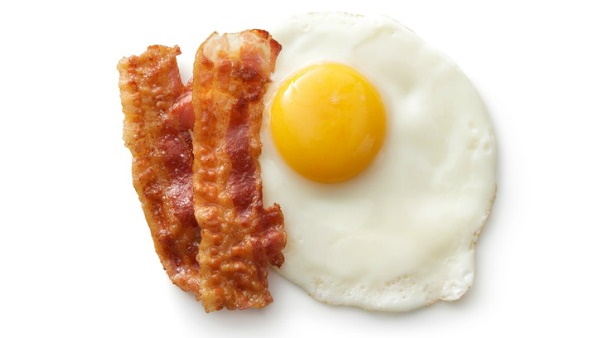 Eat fat, gain fat, right? For many decades, the traditional way to lose weight has been to subject oneself to a low-fat diet, yet current evidence suggests that, given the same caloric deficit and protein intake, low-fat and low-carb diets produce similar weight losses.
Eat fat, gain fat, right? For many decades, the traditional way to lose weight has been to subject oneself to a low-fat diet, yet current evidence suggests that, given the same caloric deficit and protein intake, low-fat and low-carb diets produce similar weight losses.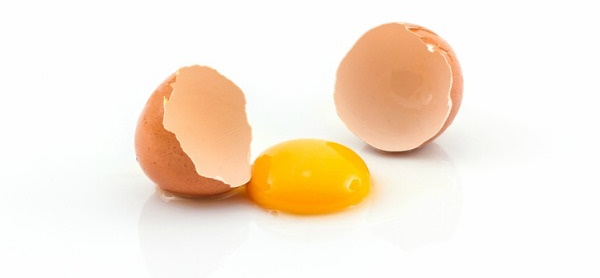 If there’s one thing the media is good at, it’s scaring you away from perfectly healthy foods.
If there’s one thing the media is good at, it’s scaring you away from perfectly healthy foods.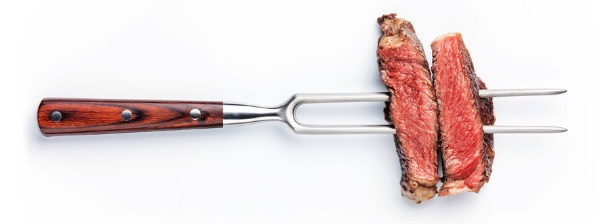 The common refrain:
The common refrain: 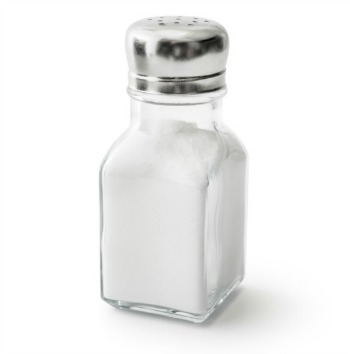 Some myths contain a grain of truth. Studies have associated excess salt with hypertension (high blood pressure),
Some myths contain a grain of truth. Studies have associated excess salt with hypertension (high blood pressure),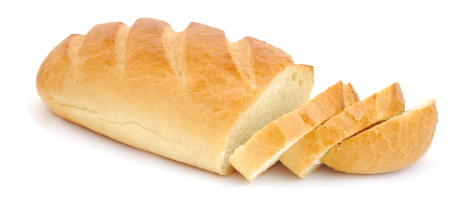 Bread has taken a beating over the past few years (especially white bread). The bread detractors generally make two arguments against its consumption:
Bread has taken a beating over the past few years (especially white bread). The bread detractors generally make two arguments against its consumption: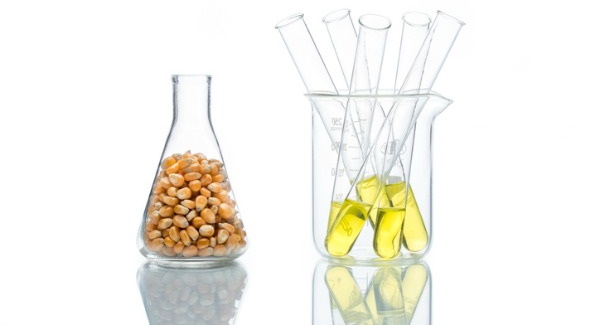 High fructose corn syrup (HFCS) is a blend of both glucose and fructose commonly used to sweeten food products.
High fructose corn syrup (HFCS) is a blend of both glucose and fructose commonly used to sweeten food products. Fresh produce has a natural appeal to many people. It just sounds better than “canned” or “frozen” fruits and vegetables. But just because a food is “fresh” doesn’t necessarily mean it’s more nutritious.
Fresh produce has a natural appeal to many people. It just sounds better than “canned” or “frozen” fruits and vegetables. But just because a food is “fresh” doesn’t necessarily mean it’s more nutritious.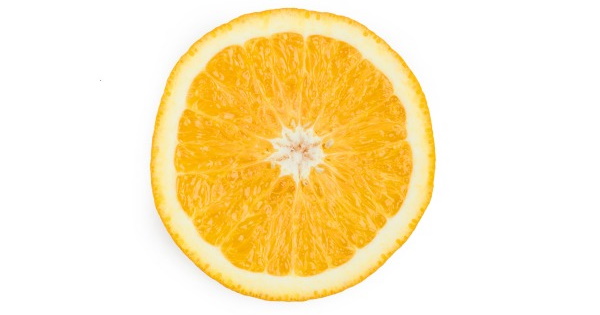 How often have you heard the claim that natural, whole foods are always better than synthetic supplements? In general, the word “natural” has a positive connotation whereas “synthetic” or “chemical” has a negative one.
How often have you heard the claim that natural, whole foods are always better than synthetic supplements? In general, the word “natural” has a positive connotation whereas “synthetic” or “chemical” has a negative one.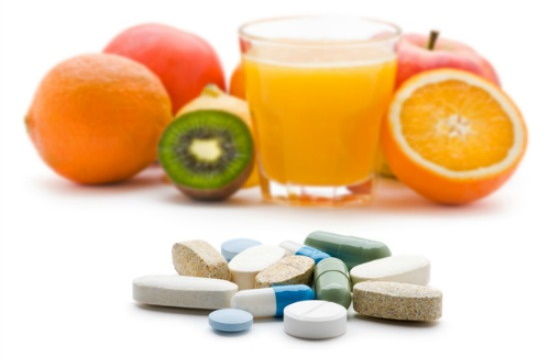 This is a favored line of thinking by supplement companies and health gurus. One argument is that natural foods fail to provide enough vitamins and minerals, due increasing levels of carbon dioxide (CO2) and intensive agriculture leading to less nutrient dense crops.
This is a favored line of thinking by supplement companies and health gurus. One argument is that natural foods fail to provide enough vitamins and minerals, due increasing levels of carbon dioxide (CO2) and intensive agriculture leading to less nutrient dense crops.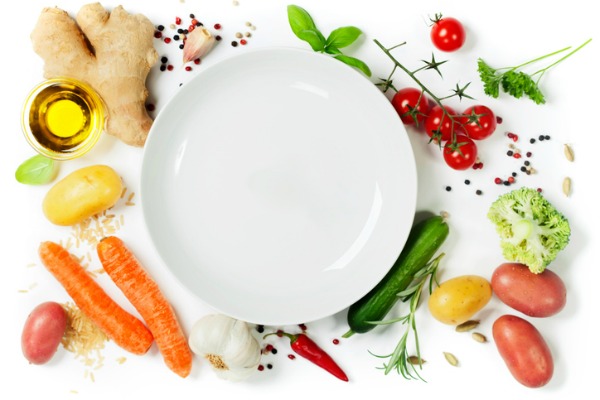 This statement is not so much a myth as a jumble of misconceptions. First of all, people seldom agree on what “clean” actually means. For some, it means shunning specific foods for religious or ethical reasons. For others, it means avoiding highly processed foods. For others still, it means eating organic. One common point of clean diets is their focus on exclusion: they tell you what clean eating is by telling you what not to eat.
This statement is not so much a myth as a jumble of misconceptions. First of all, people seldom agree on what “clean” actually means. For some, it means shunning specific foods for religious or ethical reasons. For others, it means avoiding highly processed foods. For others still, it means eating organic. One common point of clean diets is their focus on exclusion: they tell you what clean eating is by telling you what not to eat.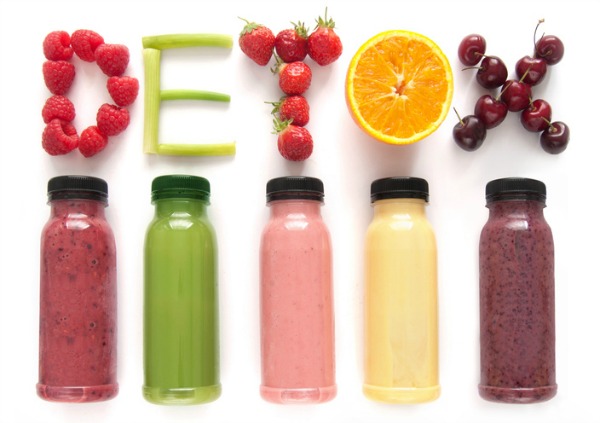
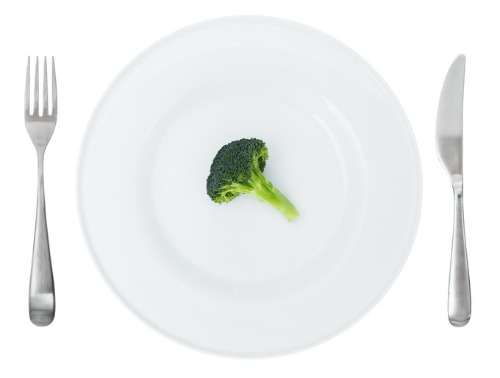 It’s easy to trace this myth back to its origin. Digestion does raise your metabolism a little, so many people believe that eating
It’s easy to trace this myth back to its origin. Digestion does raise your metabolism a little, so many people believe that eating 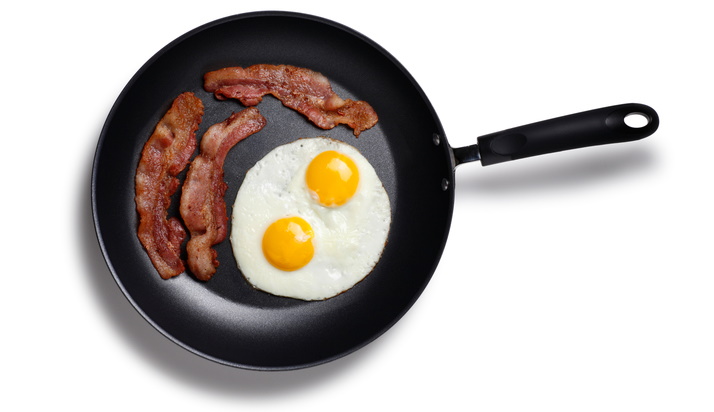 “Breakfast is the most important meal of the day” is something we have all heard before from parents, health bloggers, doctors, and ad campaigns. But the health advantages of consuming a regular breakfast has been overhyped.
“Breakfast is the most important meal of the day” is something we have all heard before from parents, health bloggers, doctors, and ad campaigns. But the health advantages of consuming a regular breakfast has been overhyped.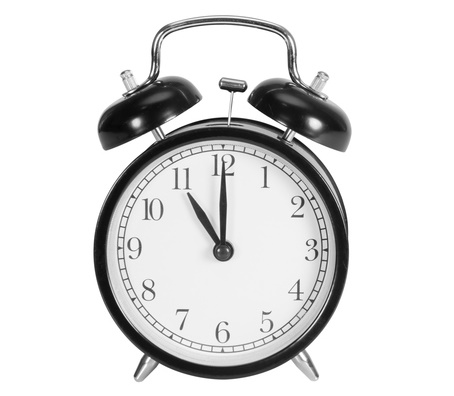 Some studies show a fat-loss advantage in early eaters, others in late eaters. Overall, early eaters seem to have a slight advantage — nothing impressive.
Some studies show a fat-loss advantage in early eaters, others in late eaters. Overall, early eaters seem to have a slight advantage — nothing impressive.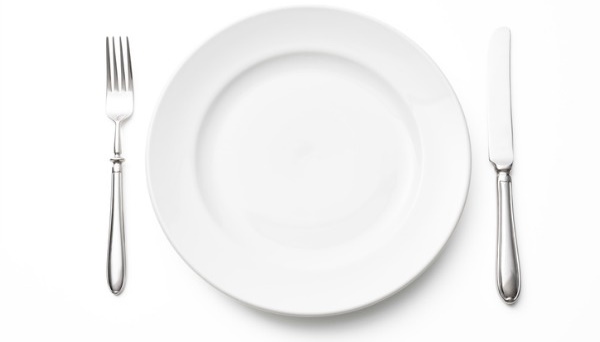 Let’s get one thing out of the way. If you exercise near maximal capacity (sprints, HIIT, heavy lifting …), eat an hour or two prior to your workout, or you’ll be more likely to underperform. Most people who choose to skip meals and
Let’s get one thing out of the way. If you exercise near maximal capacity (sprints, HIIT, heavy lifting …), eat an hour or two prior to your workout, or you’ll be more likely to underperform. Most people who choose to skip meals and 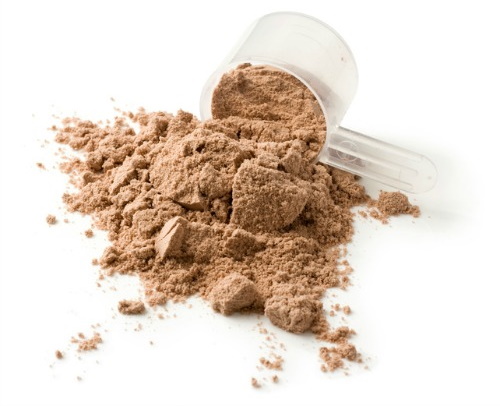 When you exercise, you damage your muscles, which your body then needs to repair, often making them more resilient (bigger) in the process. The raw material for this repair is the protein you ingest, yet the existence of a post-workout “anabolic window” for this ingestion remains a contentious topic in the literature.
When you exercise, you damage your muscles, which your body then needs to repair, often making them more resilient (bigger) in the process. The raw material for this repair is the protein you ingest, yet the existence of a post-workout “anabolic window” for this ingestion remains a contentious topic in the literature.